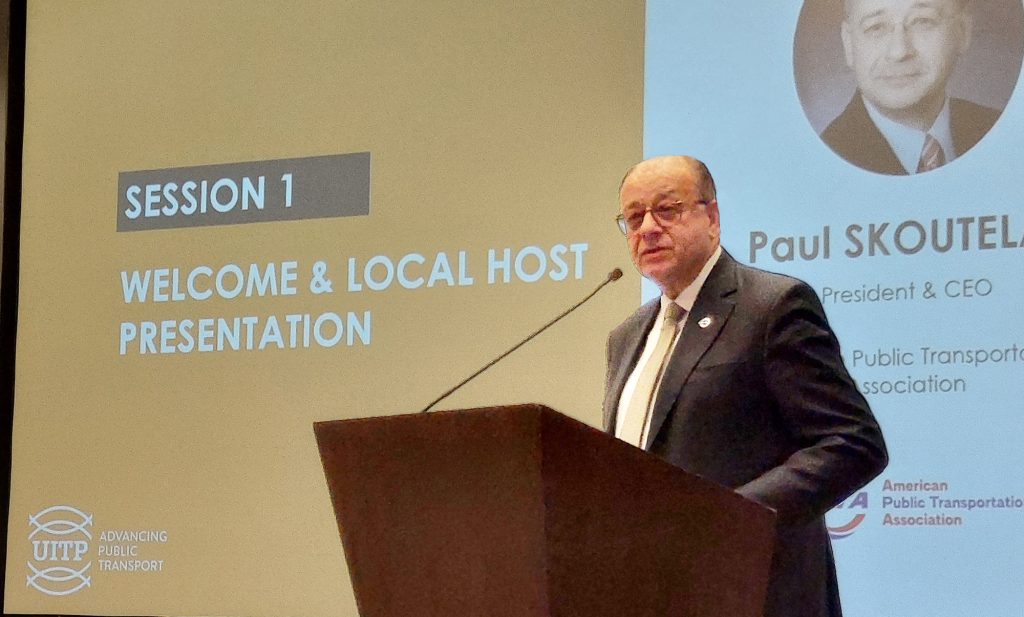APTA President Addresses UITP Meeting
12/11/2024

APTA President and CEO Paul P. Skoutelas was the guest speaker at the International Association of Public Transport’s (UITP) Metro Division meeting in Washington, DC, last week. The Washington Metropolitan Area Transit Authority was host to the attendees representing heavy rail from 24 countries.
Skoutelas noted how APTA is appreciative of the strong, collaborative relationship between UITP and APTA, which has existed for many decades.
APTA’s most critical issue is ensuring significant and sustained investment in modernizing and expanding public transportation, Skoutelas told attendees. “We will continue to show the economic and business benefits of investing in public transportation as we advocate for continued funding,” he added.
Just a little more than three years ago, Skoutelas said, President Biden signed the $1.2 trillion Infrastructure Investment and Jobs Act, which provides a five-year federal investment of $108 billion for public transportation and $102 billion for rail infrastructure. More than 11,000 public transportation projects have received funding to expand or modernize operations, and nearly 170 rail projects—including seven high speed projects—have received federal money to create or boost service.
Following his remarks, Skoutelas served as moderator in a joint UITP/APTA session: Responding to Challenges with Unhoused Individuals: Integrated Strategies from the Metro Sector. Panelists discussed how homeless individuals frequently depend on public transportation facilities or vehicles as temporary shelters. This presents an increasing dilemma for transportation agencies (often acting as first responders), affecting both their employees and passengers.

Agencies are actively seeking solutions to provide dignified support to homeless individuals while mitigating disruptions for employees and commuters. Collaborative efforts with law enforcement, social services, mental health professionals, advocates, and other stakeholders are instrumental in addressing this challenge.
Panelists included Dr. Glyn Horn Jr., co-chief of police, Denver Regional Transportation District; Daniel Habib Ribeiro Coutinho, chief operating officer, Concessao Metroviaria do Rio de Janeiro (MetrôRio); Flora M. Castillo, president, Pivot Strategies, Philadelphia, PA; Gautier Brodeo, operational development agency director, RATP Group, Paris; Travis O. Jones, community services program manager, Metro Transit Police Department (MTPD), Washington, DC.